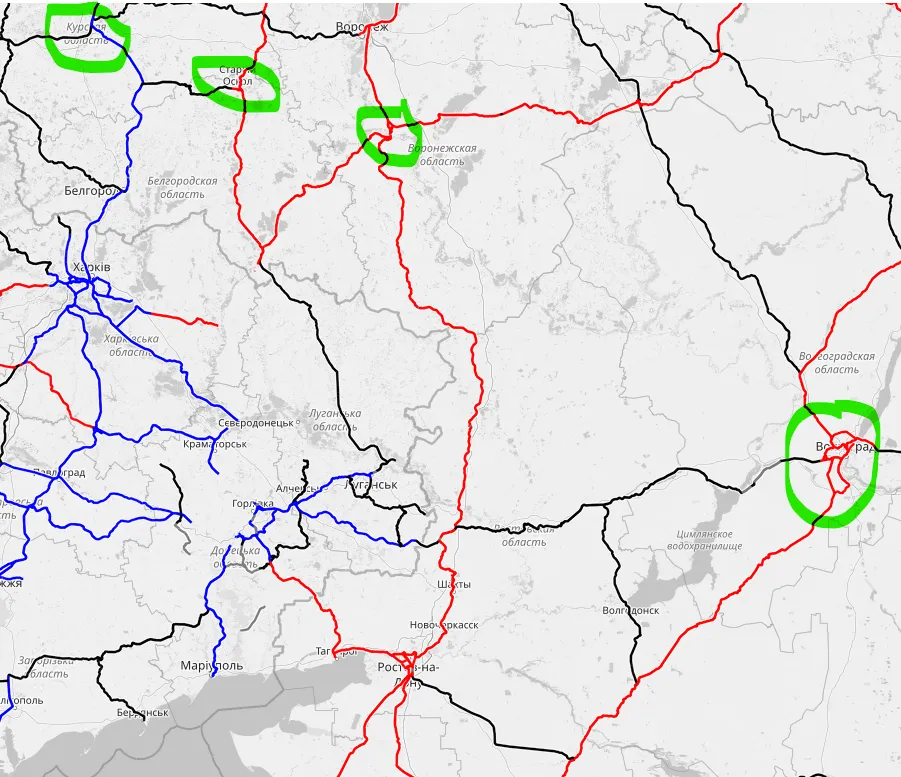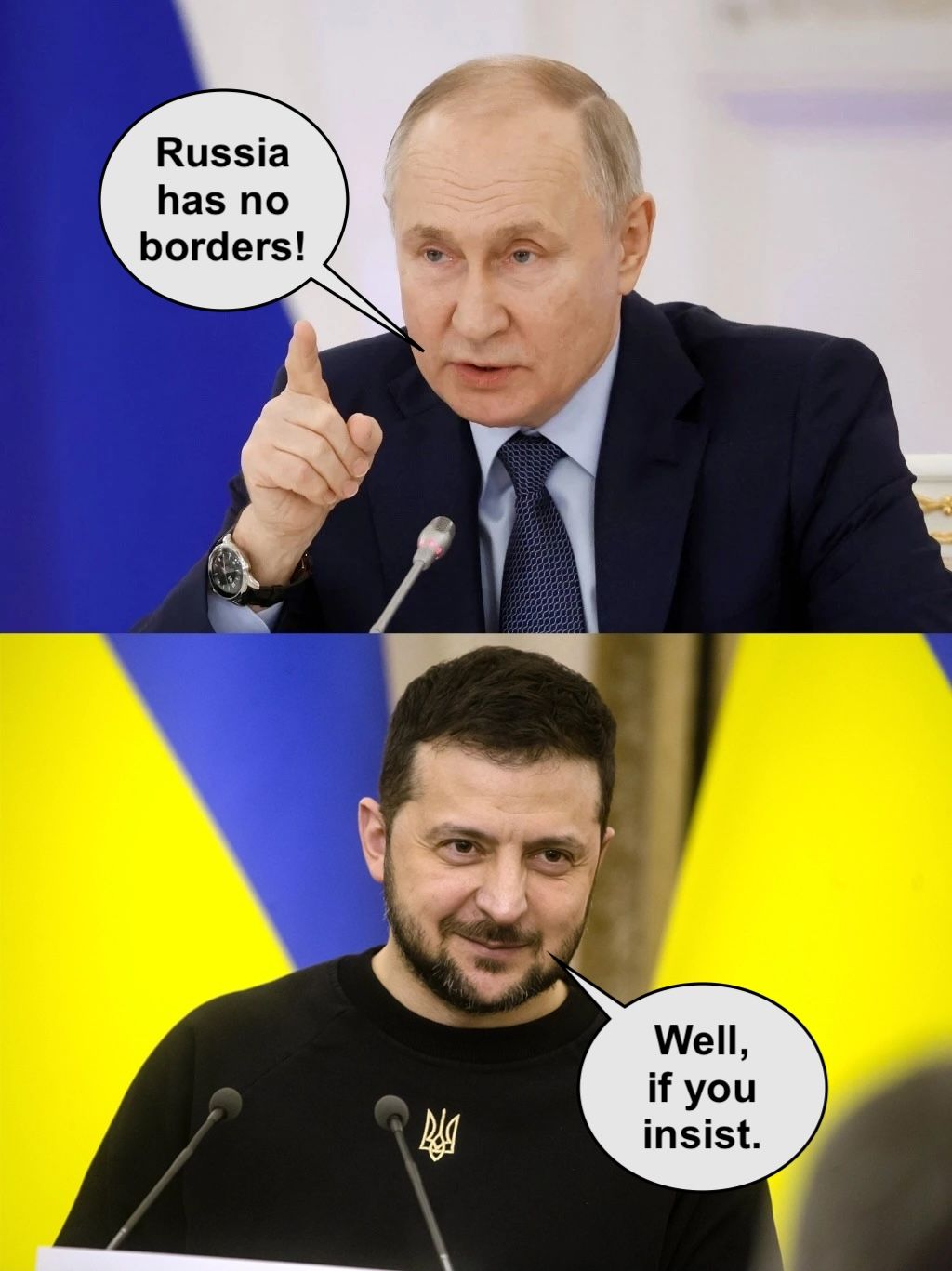The Ukraine war thread
-
Don't take your eye off of the ball, though. Russia is still advancing. I'm guessing Ukraine's Kursk operation is meant to cut off some Russian supply lines and pull Russian troops back to defend those supply lines.
@Jolly said in The Ukraine war thread:
I'm guessing Ukraine's Kursk operation is meant to cut off some Russian supply lines
I was wondering what the motivation for an offensive was. What you say makes sense. Russia MUST defend its territory. Not doing so will lose a lot of juice for Vlad the Invader.
-
The incursion is having a desirable effect in Moscow:
-
-
-
Lukashenko foreseeing trouble...
https://www.kyivpost.com/analysis/37503 -
President Putin is at a loss with his armies getting stomped in Kursk and in desperation, he summons the ghost of Jozef Stalin.
Stalin says: Why have you summoned me?
Putin: Help. The Nazis have returned to Kursk and my Armies are getting crushed! What can I do?
Stalin: Do what I did in 1943. Send the best Ukrainian troops to Kursk and ask the US for weapons.
-
President Putin is at a loss with his armies getting stomped in Kursk and in desperation, he summons the ghost of Jozef Stalin.
Stalin says: Why have you summoned me?
Putin: Help. The Nazis have returned to Kursk and my Armies are getting crushed! What can I do?
Stalin: Do what I did in 1943. Send the best Ukrainian troops to Kursk and ask the US for weapons.
-
Some Russian railways thoughts inspired by recent threads from TrentTelenko(https://threadreaderapp.com/user/trenttelenko) and Prune602 (https://threadreaderapp.com/user/Prune602) on the Xitters. There are four rail nodes in increasing distance from Ukraine that, if taken out, will completely screw Russian supply to the war zone. They are Kursk (or any where south of it), Stary Ospol, Liski and somewhere around Volgograd. See this openrailwaymap and the following screenshot of it.

The key locations (from L to R): Kursk, Stary Ospol, Liski and Volgograd
These nodes are key because they are junctions on the electrified main lines to the border area and especially (in the case of the last two) to Rostov-on-Don which Russia uses for all it’s logistics into the southern section of the war. The first two take out logistics for Kursk/Karkiv area and one major access to Belgorod (for Northern Lukhansk) respectively. Russia relies on its electrified lines as it has far more electrical locomotives than diesel....A final point. Unlike, say, airfields or ammo dumps railways stretch a very very long way. That’s the whole point, especially in Russia which is a truly enormous country. But unlike roads there typically aren’t bypasses available for when the rail line is out in one spot. As you can see from the map at the top of this post if you take out a few nodes then there are no ways around. None. No bypasses or old roads on the other side of the valley. And this is particularly true of electrified ones. If the line is not electrified then your electric locomotives can’t go there. So if you take out the junctions between different electified lines and/or the junctions between electrified and non-electrified lines then you break the network.
Worse, it’s hard to overtake trains. On a single track line it is impossible. On a double track line there are only occasional places where someone built the points to allow a train to move from one track to another. If you take the power out an electric train will stop where it is. If it stops near to a train in the opposite direction there may be no way to change tracks between them.
Russia is aware of this and has railway repair workers ready to spring into action ASAP when there’s an issue. But even though these repair teams exist, if there are enough hits in enough places then they can’t fix them all. This is the sort of thing that drone warfare is excellent at. There’s no need to hit the (probably defended) marshalling yard or junction. Just take out a rail or an overhead wire 2 miles out one way and 5 miles out another. Keep doing this. Every day and twice on Sundays.
-
@Wim said in The Ukraine war thread:
Same could be said about Ukrainian railways....
Of course, yes. Taking a railway out, especially an electrified one, could be crippling.
I wonder, however, if Ukraine has similar "choke points" for movement of goods.

